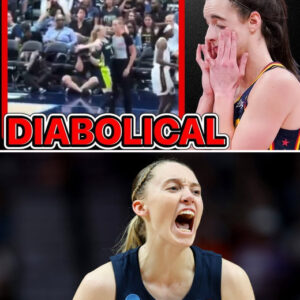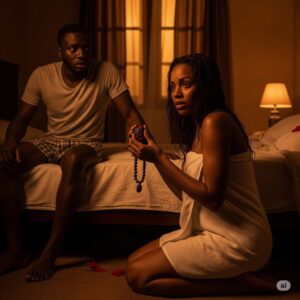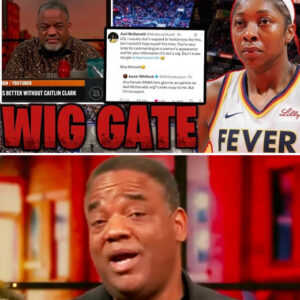— I Found A Girl Near The Railroad Tracks, I Adopted Her, But 25 Years Later, Her Real Family Arrived
“What’s that?” I stopped walking to the station, listening.
A little cry came from the left—faintly but continuously. The cold February wind blew my neck and slashed the hem of my coat. I turned in the direction of the railroad, and there, against the white snow, stood out the old worker’s hut.
Someone was lying on the side of the track. A dirty old blanket, with a little hand protruding.
“Oh my God…” I immediately lifted him off the ground.
A baby girl. I think I was about a year old, maybe younger. Her lips were flushed with cold, but she was still breathing. Her cry was faint—almost powerless.
I took off my coat and gave her a quick hug, then ran back to town to see Sister Maria Petrovna, the midwife.
“Hey, where did you get that?” He asked as he grabbed the boy.
“I saw him on the side of the track. Lying in the snow.”
“Seriously… It was just abandoned. We need to inform the police.”
“What a policeman!” he yelled at the boy again. “He’ll die in the cold if we wait for them any longer.”
Maria Petrovna sighed and took a bottle of milk from the cabinet.
“Okay, let’s get this out of the way first. But then—what are you up to?”
I stared at the boy’s face. She stopped crying and stuck her nose in my sweater.
“I’m going to raise him. I don’t have any other option.”
I could hear the neighbors moaning:
“Thirty-five are still unmarried. All of a sudden, there is a child.”
I pretended I didn’t hear anything.
A few helped me sort out the papers.
I named her Aliona. A new beginning in his life seemed like a light in the midst of darkness.
A New Life
For the first few months, I hardly slept. Fever, itching, teeth starting to grow… I was carrying her, singing old lullabies that I still remember from my grandmother.
“Mom!” Her first words in ten months, as she held out her hand to me.
I burst into tears. I was single for a few years, and then all of a sudden—I became a mother.
By the time he was two years old, he was running around the house, chasing Vaska, our cat. Everything he wanted to know, everything he wanted to know.
“Your Majesty, your son’s wisdom!” The neighbor nodded.
“He knows all the letters!”
“Huh? At the age of three?”
“Try asking!”
Galia showed the letters one by one. And Aliona named them one by one. And then he went on to tell a story—the legend of the Chicken Rjaba.
A Son of Wisdom and Beauty
At the age of five, he entered a daycare in a nearby town. I was the one who delivered. The teacher was astonished—he was already proficient in reading and could count to a hundred.
“Where did this kid come from?”
“The whole village taught him,” I replied with a laugh.
By the time he got to elementary school, he had a long braid that was within reach. Every day, I’m the one who weaves and chooses a ribbon to fit her dress.
At the first parent meeting, his teacher approached me:
“Zinaida Ivanovna, your daughter is extraordinarily intelligent. Such a student is very rare.”
My heart leaped with joy. My Son. Little Aliona.
The years passed. She became a real maiden—tall, slender, blue-eyed, like heaven on a summer day.
He won the school championships. The teachers always praised him.
“Mom, I want to go to medical school,” she said in Grade 10.
“Honey, that’s expensive. How can we afford the cost of housing and housing?”
“I can get a scholarship! “You can see it, Mom!”
The Coming of the Dream
He passed the entrance exam as a scholar. At the graduation ceremony, I cried—with joy and fear. It was the first time he had been away. At the train station, he gave me a hug:
“Don’t cry, Mom. I go home every weekend.”
He lied a little. He ate up the schedule. He started coming home every month, and then more rarely.
He called every day:
“Mama, grabe ‘yung anatomy class namin! Pero pasado ako!”
“Good, son. Are you eating well?”
“Yes, Mom. Don’t worry.”
In the third year, she had a fiancé—Pasha, her classmate. He introduced me: tall, serious, respectful. The handshakes were firm.
“Okay,” I said, “but don’t forget to put your studies first.”
“Mom!” He replied with a frown. “I’m going to end it with honors!”
After college, he was offered a residency. She chose pediatrics—she said she wanted to heal children.
“Mom, you helped me survive,” she said over the phone, “Now I’m going to help the little ones.”
A Truth He Didn’t Know for a Long Time
After her residency, Aliona became one of the most recognized and young pediatricians in the entire region. A lot of people were impressed by his skill and care. Despite the success, however, there were still questions in his mind.
“Why can’t I go to my mother’s house?” Not a single face, no.”
He tries not to ask—he doesn’t want to doubt the woman who raised him with all his heart. But one day, while Zina was cleaning an old trunk under the stairs, an old envelope accidentally dropped.
“Mom, what is this?” Aliona asked.
Adultery was silent. Sitting on the edge of an old chair, holding the envelope like a heavy memento.
“Maybe it’s time,” he said softly.
The Acknowledgment
That night, under the dim light of the lamp, Zina laid out the whole truth:
“I’m not your son, Alice. One morning in February, I saw you by the railroad tracks. You’ve wrapped up in an old blanket. It was cold. Inawan.”
Aliona knelt down in front of her mother, tears streaming down her face.
“Mom… And you? Aren’t you scared?”
“Yeah, I was scared. But I have a stronger belief… That you have to live. That you should be loved.”
Zina showed me the old piece of paper that had been found—the letter of the abandoned mother:
“Please help him live. I can’t. I’m sorry.”
Aliona cried, trembling.
“So… Mom, you are my life. You are my real mother.”
A Visit to the Railway
A few days after the confession, Aliona was invited.
“Mom, I want to see the place where you found me.”
They went back to the old railroad. A lot has changed, but the old worker’s hut is still there. Aliona took her mother’s hand and looked up at the sky.
“This is where you started me. I have been given a second life.”
“I didn’t think this day would come, Aliona,” Zina said. “That you, the boy I once carried in the midst of the snow, will now be a doctor.”
An Unexpected News
A month passed. A family with documents arrived at Aliona’s clinic.
There was an old woman. She burst into tears as soon as she saw him.
“Son… I am your mother who left you.”
Aliona was confused. Zina moved slowly behind him, silently.
“I was an orphan at the time. Got pregnant at the wrong time. The family was evicted. No money, no courage… Every day I pray that someone will help you. When I see you today… I know I made the right decision.”
The Bloodless Decision
They talked to each other in earnest. But in the end, Aliona had only one answer:
“You may have been the one who gave birth to me… My mother, however, was the one who held me when no one else did. My mother is an adulteress.”
Final Scene: At Children’s Graduation
A few years passed. Aliona has set up her own foundation for abandoned babies and children. One of the events was the graduation of children who learned to read and write under his program called:
“Pusong Ina: Alay ni Zina.”
As Aliona spoke in the front, Zina sat in the front row, holding a bouquet of flowers, silent but with a smile full of pride.
“I became a doctor, not because of blood, but because of the care of a woman with a heart stronger than anything. I dedicate all of this success to him.”
Everyone was crying. And in Zina’s heart, she said only one thing as she looked at her son:
“It’s all worth it. Even though I didn’t get pregnant… I’ve got a son who is struggling.”
Wakas.
Pusong Ina, Pusong Bayan
Three years after Aliona founded the foundation, it expanded unexpectedly.
From a simple classroom in a barn on the side of the clinic, the “Heart of the Mother Foundation” has grown — now with more than 20 branches across the country. In every city and province where there is an abandoned child, there is a hand ready to hold, nurture, and rekindle hope.
On the back of each project, a picture of Zina hangs — among children who have learned to talk, laugh, and dream again.
The Call From Above
One day, Aliona received a letter from the Department of Health.
“Dr. Aliona Ivanovna, as one of the world’s most renowned pediatricians and founder of a national program for orphaned children, is asking for help to develop the first comprehensive national program for neonatal and pediatric trauma recovery.”
Zina looked at each other as she read it.
“Mom,” Aliona whispered, “we’re going to help the country.”
Zina was silent, but she could feel tears in her eyes.
In the National Senate
Aliona stood in front of senators and lawmakers.
Wearing a white medical coat, he carried a notebook with his foundation’s name on the cover.
“Ladies and gentlemen, I was not born in the hospital. My own mother didn’t take care of me. I was thrown into the cold of the railroad.”
“But because a woman chose me, not because of blood, but because of the heart, I stand before you now.”
“If every orphan child is given the opportunity to live a life of nurturing, there is no need to wait for the miracle. We can create it—in the law, in the system, in the heart of government.”
The National Program
A few months later, the “Zinaida Act” was enacted — a program that provides:
Free checkups and medical support for abandoned and adopted children
Emergency foster care networks with proper training and support
Scholarships for Children Without Families
Psychological Rehabilitation for Those Who Have Gone Through Trauma
And at every launch of this program, Zina was always there—standing on the sidelines, smiling peacefully, as her son wrote history.
The True Mother of the People
In a TV documentary, Aliona was asked:
“What’s the most important legacy Zina left you?”
He didn’t answer right away.
But he turned to his mother, sitting in the garden, watching the children play.
“Faith,” Aliona replied. “Love doesn’t have to be conditional. And motherhood, not based on blood, but on the decision to love even without anything in return.”
Final Scene: A Quiet Night
While the children were sleeping at the newly established “Zinaida Recovery Center,” Aliona walked down the hallway, carrying a flashlight.
She walked into a bedroom — there was a baby who had just arrived under the program. He slept quietly, with a small red ribbon on his wrist.
Aliona approached. The boy’s forehead was slapped on the forehead.
“Welcome, dear. You’ve been in a house you’ve never asked for… Your heart is dedicated to you.”
And for every child who learns to smile again…
With every voice that learns to speak again…
With every hand that fights without a family…
Zina stood up. Aliona stood up.
Her mother’s heart was pounding.
Wakas.





